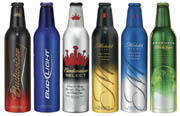
Choose Well
General Mills (Minneapolis), already being lauded for its efforts to add whole grains to many of its cereal concepts, is making an effort to communicate a healthful outlook to children with a new television advertising initiative.“Choose Breakfast,” the company's largest children's advertising effort ever in terms of number of children reached, is a non-branded approach to communicating the benefits of breakfast to young people.
Acknowledging the effort as the first non-branded campaign on this scale, General Mills has utilized its “insights on how to communicate health to kids and developed advertising that will impact children in a very positive way,” says Mark Addicks, chief marketing officer with the company.
The campaign shows children in fun settings with the health benefits of breakfast, using such “kid terms” as “think fast,” “have power” and “get going,” the company explains. The inspiration is “in line with how kids process communication around health benefits,” explains a company spokesperson.

Zipping Along
The resealable “zipper” package has gained wide acceptance throughout much of the grocery store, from snacks to lunch meats, but Masterfoods USA (Hackettstown, N.J.) is among the first to bring the concept to confections. Starburst and Skittles candies--Masterfoods' top-selling sugar products--soon will be found in the new stand-up, resealable pouch, which promises to help maintain freshness.
In addition to the packaging innovation, Masterfoods' global parent company, Mars Inc., is expanding its nutrition efforts. The company has launched a new business unit, Mars Nutrition for Health & Well-Being, to develop new foods, snacks, beverages and lifestyle support to serve the nutritional and well-being needs of consumers. As Michael Mars, president of Mars Nutrition for Health & Well-Being, explains, “Our unit's mission is to be a trusted partner in healthy lifestyles, enabling consumers to look, perform and feel their best everyday. We will bring great taste to products designed to provide real health benefits supported by sound nutrition science.”
Power Packs
The beverage world continues to see a revolution in its packaging. The aluminum bottle so popular elsewhere has cemented its place in Anheuser-Busch's (St. Louis) stable. The company reports sell-outs in bars, restaurants, clubs and supermarkets around the country, prompting the brewer to double its capacity for the package by this fall.Labatt Brewing Company's (Toronto) new can goes a step further by incorporating an insulated label system. The 473ml Labatt Blue Cold One is coated with a wrap that provides a thin thermal barrier to protect the beer from warm hands, condensation and rising temperatures.
Not only cans can innovate, however. Arbor Mist (Canandaigua, N.Y.) is taking wine in a single-serve direction with Arbor Mist Minis. The frosted-glass, 187ml bottles will be sold in packs of four in three flavors: Exotic Fruits White Zinfandel, Strawberry White Zinfandel and Island Fruits Pinot Grigio.

Doesn't Ad Up
General Mills' efforts notwithstanding, advertising aimed at young people has become quite the source of controversy in recent weeks. The Center on Alcohol Marketing and Youth (CAMY) at Georgetown University (Washington) has released a paper on alcohol advertisements and children. In short, the group says alcohol companies can do more to shield young eyes from alcohol ads. In fact, the paper suggests a new standard for the placement of alcohol ads could lead “to overall lower advertising costs without reducing the advertising reaching the often-cited 21- to 34-year-old and 21- to 24-year-old demographic markets for the industry.”In the U.K., physicians are bemoaning the advertising of junk food to youngsters. The British Medical Association (London) has proposed banning junk food ads and sponsorships aimed at children, all part of efforts to address the country's obesity epidemic. The plan also includes demanding school meals adhere to strict guidelines on sugar and fat content, with “unhealthy” food and drink vending machines banned from schools.